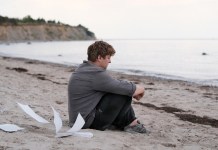

Dr. Jane Goodall, celebrated primatologist and ethnographer, is an extraordinary woman. Having ambitioned at the age of just ten to one day move to Africa and live with the animals, a young Jane Goodall set off from her England home with obliging mother in tow. Sponsored by one Louis Leakey, who believed a woman not yet biased by further education would make the best observer, Goodall went on to revolutionise the field of primatology with the discovery of tool-use in chimpanzee culture. While in the field, Goodall also redefining preconceived beliefs surrounding the chimpanzee diet and the species’ capability of experiencing emotion.


Jane’s Journey serves a purpose beyond mere biography, however, with the film’s humanitarian cause becoming increasingly prominent as the documentary progresses. Now 75, Goodall shows no sign of giving up her adventurous and wandering lifestyle. Travelling three hundred days a year, and with initiatives set up in over 120 countries, the Jane Goodall Institute and its Roots and Shoots projects endeavour to bring hope to children and inspire the next generation to remodel their worldview and reconsider their priorities. Determined that there is still time to make a difference, Jane’s Journey is a great platform for reaching out to audiences unfamiliar with Goodall’s esteemed work: both scientific and ecological.


While the anthropologist in me was dispirited by Jane’s Journey’s oversimplified approach to Goodalls’ many scientific advancements, the message of hope is expounded with such unwavering enthusiasm and urgency that the film at least succeeds in conveying the budding humanitarian’s optimistic, but realistic, stratagem for improvement. Although it could have made better use of its generous running-time, and struck a more effective balance between the paying of tribute and propaganda, Lorenz Knauer’s documentary is an engaging introduction to a truly inspirational – as one awards presenter puts it – “environmental superstar”. Just don’t confuse her with Dian Fossey of Gorillas in the Mist.
[Rating:3.5/5]








